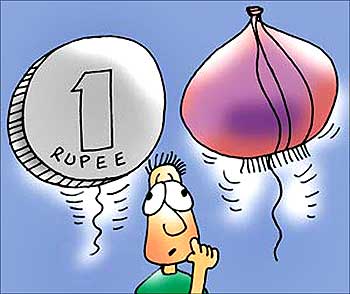
In a move that is going to affect Non-Resident Indians as well as Indian residents alike, Indian tax laws are due to undergo an extensive facelift. The 48-year-old Indian Income Tax Act is set to be replaced by a new Direct Tax Code from April 1, 2011.
The ball is already in play. A draft of the new Direct Tax Code has been released by the government for public debate. Comments and suggestions from taxpayers and other stakeholders will, the government says, be taken into consideration before enacting the final law.
The rationale behind the revised tax bill, according to the authorities, is that the existing Income Tax Act, passed way back in 1961, has undergone numerous amendments over the years. This, in turn, has rendered the legislation extremely complex and incomprehensible to the average taxpayer.
Besides, there have been frequent policy changes due to the changing economic environment, complexity in the market, increasing sophistication of commerce, development of information technology, and attempts to minimize tax avoidance.
The problem has been further compounded by a multitude of often conflicting judgments rendered by the courts at different levels.
The new Direct Tax Code is expected to result in a higher tax-to-GDP ratio, reduce compliance costs, lower the administrative burden, discourage corruption and most importantly, improve equity both horizontal and vertical.
Whether NRIs and Persons of Indian Origin will agree - especially with the last point - is a valid question, for a closer reading of the Direct Tax Code suggests that it is the Diaspora that will be most adversely affected by its provisions.

Take the hypothetical example of an NRI who currently earns Rs 200,000 as NRO interest. With the current protection of the basic exemption limit of Rs 160,000, only Rs 40,000 will be taxed at the rate of 10 per cent, resulting in a tax liability of Rs 4,000.
Under the Direct Tax Code and its flat 20 per cent tax rate without any protection, his new tax burden will be Rs 40,000 -- ten times the earlier amount!
And that is not the real shocker. Hitherto fully exempt long-term capital gains on equity and equity mutual funds are slated to be taxed at a flat rate of 30 per cent!
In fact, under the new regime, there will be no distinction between long-term and short-term gains as practiced currently -- all capital gain income of an NRI has to be aggregated and taxed at a flat rate of 30 per cent. The same is applicable for residents, but with a big difference: in the case of residents the shelter of slab rates is available.
Thus, income between Rs 160,000 and Rs 10 lakh (Rs 1 million) is to be taxed at the rate of 10 per cent, between Rs 10 lakh and Rs 25 lakh (Rs 2.5 million) is to be taxed at the rate of 20 percent, and only income beyond Rs 25 lakh is to be taxed at the rate of 30 per cent.
In other words, Indian residents will pay 30 per cent tax on capital gains only if such gains are above Rs 25 lakh. This tiered system of tax is not available to NRIs under the Direct Tax Code.

The other measure under the Direct Tax Code that could have wide-ranging implications has to do with tax laws dealing with property. Currently, under the Income Tax Act, one self-occupied property is free of tax, while the second property onwards is taxed on the actual rent received.
Even if such properties are not rented out, tax is payable on the notional rent (known as 'deemed let out property') under the Income Tax Act.
Interest payable on housing loans is deductible with a ceiling of Rs 150,000 for self-occupied properties. There is no ceiling applicable in the case of let out or deemed let out properties, however.
Under the Direct Tax Code, one self-occupied property continues to be tax-free, but the interest deduction of Rs 150,000 will no longer be applicable. Even the Section 80C (of the Income Tax Act) deduction on the principal portion of the equated monthly instalment stands cancelled under the Direct Tax Code.
However, what will come as a blow to most NRIs and investors in property is that even for let out or deemed let out properties, tax will be payable on the higher of the actual or 'presumptive rent'.
Presumptive rent, a new concept under the Direct Tax Code, has been fixed at 6 per cent of the ratable value stipulated by the local authority. Where no ratable value has been fixed, 6 per cent shall be calculated with reference to the cost of construction or acquisition of the property.
To clarify through an example, take the case of a tenant who is paying a rent of Rs 25,000 per month on a property that costs say Rs 1 crore (Rs 10 million). That translates into an annual rent of Rs 300,000, or 3 per cent of the property cost.
Under the Direct Tax Code, irrespective of whether or not the landlord is receiving Rs 300,000 as rent, he will have to pay tax as if he is receiving Rs 600,000 (6 per cent of a Rs 1 crore).

Another change under the Direct Tax Code is that there is no relief even if the property lies vacant. Currently, no tax is payable for the period in which rent is not received, on account of the fact that the property was not let out or there was no tenant. This will change under the Direct Tax Code, and rent will be payable even when the property lies vacant.
This lack of 'vacancy allowance', which is currently available under the Income Tax Act, is significant, as buying property as an investment becomes extremely expensive. On the other hand, consumers who intend to use the property for their own use can look forward to the dip in prices that will be a consequence of reduced demand.
Apart from the interest, taxes levied by a local authority and tax on services if actually paid will be allowed as deduction. Secondly, 20 per cent (as against the 30 per cent currently) of the gross rent will be allowed as a standard deduction towards repairs and maintenance.
In sum, the provisions of the Direct Tax Code will have a substantial impact on the property and stock markets. In the case of property, elimination of tax deductions and the presumptive rate of taxation will adversely impact potential investors.
On the other hand, since ownership of more than one property (or investment properties) will become significantly more expensive, it will indirectly benefit real consumers by driving down prices.
The harshest blow has been reserved for equity investors. In most cases, the jump will be from a zero tax regime to paying tax at the rate of 30 per cent. Currently, one of the key attractions of India is a tax-friendly capital market system. If this is taken away, there is no gauging the extent of collateral damage that will take place.
Possibly reinstating the Securities Transaction Tax and taxing short-term gains at a flat rate of 30 per cent, while exempting gains for holding over one year, would not only encourage long-term investing but would also augur well for the health of the Indian market and its economy.

To sum:
1. Under the new code, NRIs' tax liability in India could go up by as much as 10 times.
2. Hitherto fully exempt long-term capital gains on equity and equity mutual funds are slated to be taxed at a flat rate of 30 per cent.
3. Distinction between long-term and short-term gains will go.
4. In the case of property, elimination of tax deductions and the presumptive rate of taxation will adversely impact potential investors.
5. For equity investors, in most cases the jump will be from zero tax to paying at the rate of 30 per cent.